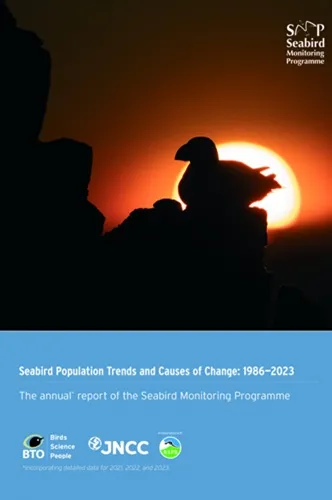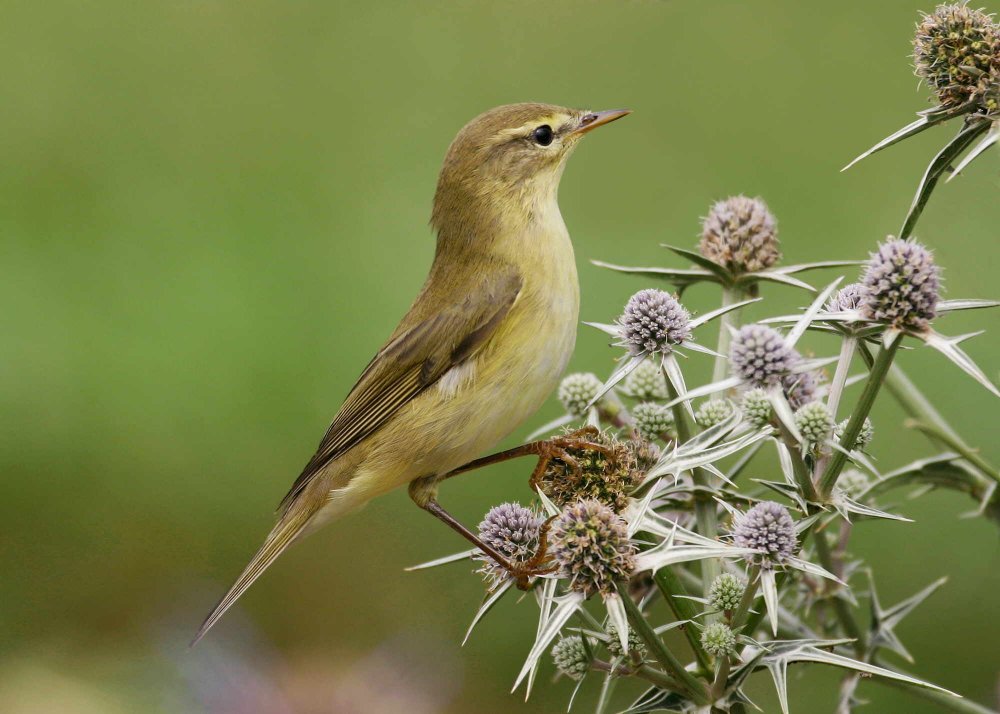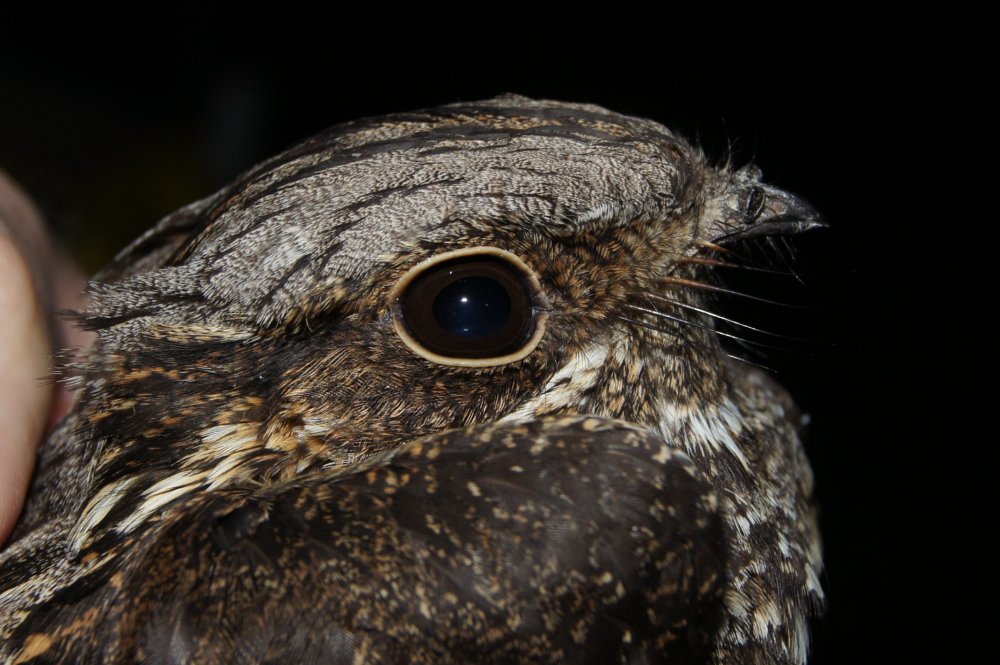BTO create and publish a variety of important articles, papers, journals and other publications, independently and with our partners, for organisations, government and the private sector. Some of our publications (books, guides and atlases) are also available to buy in our online shop.
Annual report of the Seabird Monitoring Programme
Seabird Population Trends and Causes of Change: 1986–2023
This report presents the latest seabird population trends in breeding abundance and productivity using data from the Seabird Monitoring Programme (SMP).
The report documents changes in the abundance and productivity of breeding seabird species in Britain and Ireland from 1986 to 2023, and provides a detailed account of the 2021, 2022 and 2023 breeding seasons.

Search settings
Season-long consequences of shifts in timing of breeding for productivity in Willow Warblers, Phylloscopus trochilus
Author: Morrison, C.A., Robinson, R.A., Clark, J.A., Leech, D.I. & Gill, J.A.
Published: 2015
New research by the BTO and the University of East Anglia uses information from the Nest Record Scheme to investigate changes in Willow Warbler breeding between the 1960s and the present day. Despite advances in the timing of egg laying, there has been little change in Willow Warbler productivity over this period.
01.01.15
Papers Bird Study

Home-range size and habitat use of European Nightjars Caprimulgus europaeus nesting in a complex plantation-forest landscape
Author: Sharps, K., Henderson, I., Conway, G., Armour-Chelu, N. & Dolman, P.M.
Published: 2015
Nightjar populations have increased in recent years, but some declines have been noted at sites supporting nationally important breeding populations. BTO research is using tracking technology to better understand the habitat requirements of this cryptic yet charismatic species, so that habitat can be optimally managed to conserve them.
01.01.15
Papers

Hatching success in Lesser Black-backed Gulls Larus fuscus - an island case study of the effects of egg and nest site quality
Author: Ross-Smith, V.H., Johnston, A. & Ferns, P.N.
Published: 2015
Within an avian breeding population, there can be considerable variation in egg and nest site characteristics that have implications for individual reproductive success. Here we present a detailed case study of Lesser Black-backed Gulls Larus fuscus nesting on Flat Holm island, Wales, at a time when the colony was growing. This species is ground-nesting, with a modal clutch size of three. We surveyed 714 nests across the island during two consecutive years and recorded data on nest and egg characteristics, along with hatching success. We modelled how hatching success was associated with clutch size, egg volume, egg laying order and local habitat features, i.e. the amount of vegetation surrounding the nest and each nest's proximity to neighbouring nests. Eggs were most likely to hatch when they were laid in the middle of the season, were large in size, part of big clutches and in nests with a substantial amount of surrounding vegetation. Lesser Black-backed Gull productivity is currently low in many protected rural and coastal colonies throughout this species' range. Detailed information on factors influencing reproductive success could therefore indicate ways in which this species could be better managed to help maintain and conserve breeding populations.
01.01.15
Papers
Bird Trends 2015: trends in numbers, breeding success and survival for UK breeding birds
Author: Robinson, R.A., Marchant, J.H., Leech, D.I., Massimino, D., Sullivan, M.J.P., Eglington, S.M., Barimore, C., Dadam, D., Downie, I.S., Hammond, M.J., Harris, S.J., Noble, D.G., Walker, R.H. & Baillie, S.R.
Published: 2015
01.01.15
Reports
Comparison of trends in butterfly populations between monitoring schemes
Author: Roy, H.D.B., Ploquin, E.F., Randle, Z., Risely, K., Botham, M.S., Middlebrook, I., Noble, D., Cruickshanks, K. Freeman, S.N. & Brereton, T.M.
Published: 2014
10.12.14
Papers